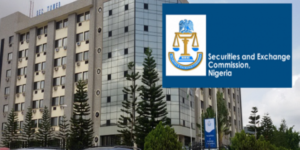
The Nigerian National Petroleum Corporation (NNPC) has finally admitted that the debts owed international oil traders as a major factor in the ongoing fuel scarcity across the country.
In a statement released on Sunday, NNPC spokesperson Olufemi Soneye confirmed reports by Nairametrics and other media outlets, attributing the fuel shortage to supply disruptions caused by outstanding debt obligations to international oil traders.
While NNPC acknowledged this situation, the corporation did not disclose the exact amount owed to these oil traders.
It is worth recalling that Nairametrics previously reported that NNPC was indebted to oil suppliers to the tune of $6.8 billion in subsidy debts, making it challenging for the corporation to procure imported petrol products.
“NNPC Ltd. Has acknowledged recent reports in national newspapers regarding the company’s significant debt to petrol suppliers. This financial strain has placed considerable pressure on the Company and poses a threat to the sustainability of fuel supply.
“In line with the Petroleum Industry Act (PIA), NNPC Ltd. Remains dedicated to its role as the supplier of last resort, ensuring national energy security. We are actively collaborating with relevant government agencies and other stakeholders to maintain a consistent supply of petroleum products nationwide,” Soneye said.
NNPC Limited’s recent statement comes amid a severe fuel scarcity gripping the nation. This situation also suggests that the oil company may no longer be able to maintain the fixed price of petrol following the removal of the subsidy on May 29, 2023.
NNPC indicated that it is seeking financial relief from the federal government, hinting that the company might rely on government intervention, possibly in the form of a subsidy, to navigate this financial crisis.
The growing social anxiety over the potential return of the subsidy has intensified, particularly with various reports suggesting that the federal government may have reinstated the subsidy following the naira’s devaluation.
Although NNPC has yet to confirm the reintroduction of the subsidy, its recent statement suggests that the federal government may need to step in to help settle some of the company’s obligations to international oil traders.
Fuel scarcity has returned to major cities like Lagos and Abuja, with vehicles seen queuing at the few filling stations selling petrol.
This comes as NNPC denies owing oil traders a $6.8 billion fuel subsidy debt, which some believe is contributing to the supply challenges.
Major roads in Lagos and Abuja were noticeably empty, as observed by Nairametrics, due to motorists lacking petrol to move around.






